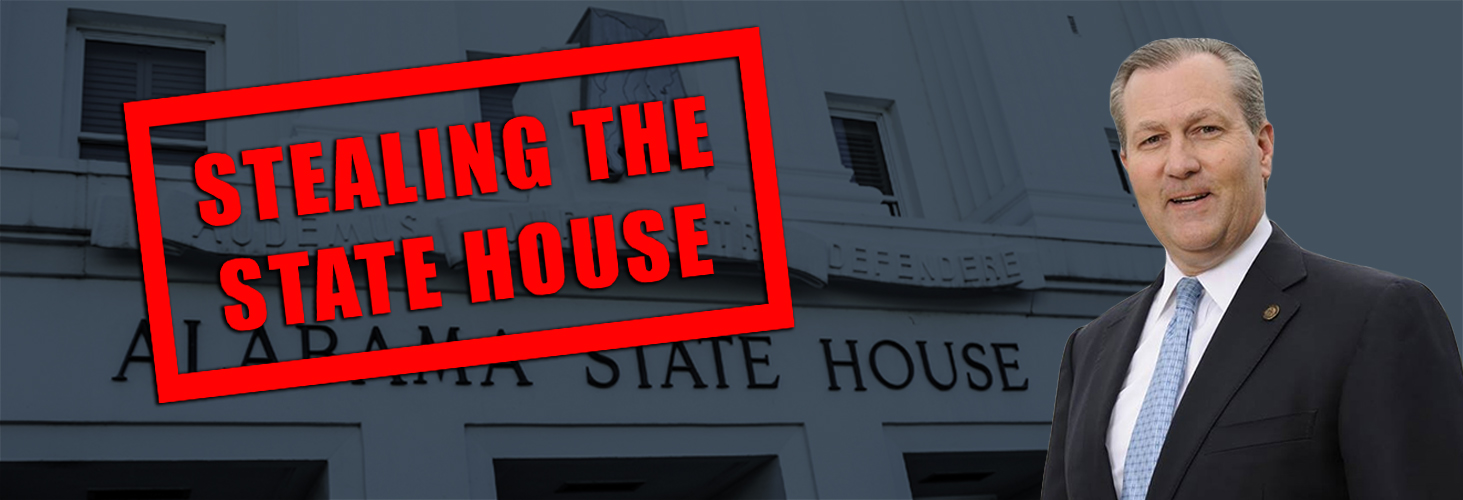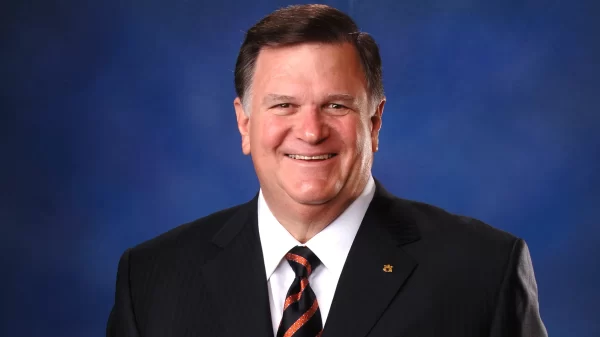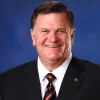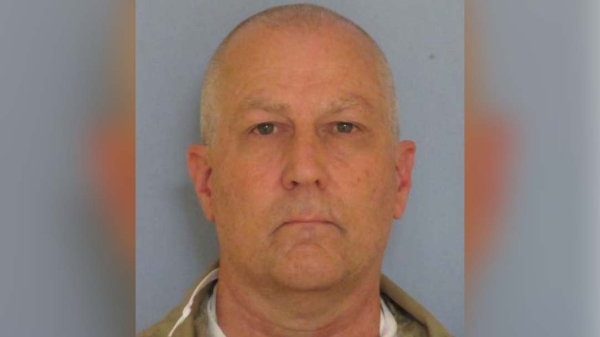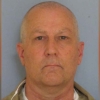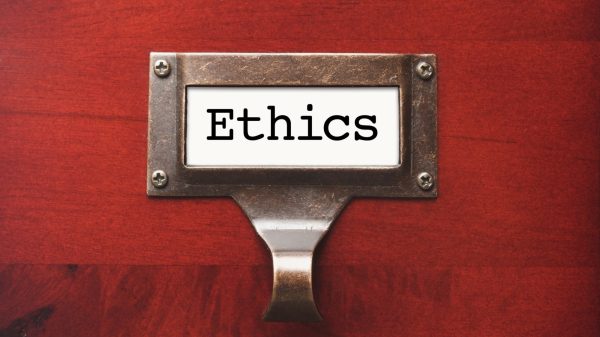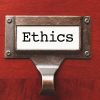By Bill Britt
Alabama Political Reporter
MONTGOMERY—Mere months after passing the self-proclaimed toughest ethics laws in the nation, it appears that Speaker Mike Hubbard colluded with former Governor Bob Riley to circumvent those very laws. This, according to the State’s response to Hubbard’s request to have the 23 felony charges against him dismissed on the grounds that the Ethics Laws are unconstitutional.
Aided by lobbyists, business executives, a radio station manager, and a favored reporter, Hubbard not only received tens of thousands of dollars in monthly contract fees, he also, with their help, effectively hid the evidence of his alleged crimes.
Speaking in December 2010, after the Special Session which ushered in the State’s current ethics law, then outgoing Gov. Riley said, “These reforms represent a sea of change of historic proportions, and will make Alabama the new standard for ethical government in the United States.” By February, Hubbard and Riley were planning a way to skirt those very laws to make money.
In an email exchange between Hubbard and Riley, mark Exhibit 27 reveals on February 17, 2011, the pair began to map out a scheme to arrange for Hubbard’s company to subcontract to Riley’s lobbying firm for work the Poultry & Egg Association. This is just one of many plans Hubbard and Riley hatched to make money using the mantle of Hubbard’s office as Speaker.
Each email exchange between the two men shows their plans to enrich themselves, but not a single one finds any mention of how their actions would benefit the State, or its people.
On August 21, Hubbard’s attorneys filed a motion to dismiss, stating that the ethics laws he and Riley had championed were unconstitutional. The State’s prosecution responded with its own filing, challenging Hubbard’s request.
In his filing, Hubbard argued, “Michael G. Hubbard …, by and through the undersigned counsel, hereby petitions this Court to enter an order dismissing the indictment based on the unconstitutionality of the Alabama Ethics Act, Ala. Code § 36-25-1 et seq. …”
The State responded by saying, “Hubbard believed the laws to be great politically because they helped his party take over the Alabama Legislature, and great legally because they would have no legal effect. Without effect, those laws could not be used to stop him from personally benefiting from his elected position to the tune of tens of thousands of dollars per month for representing the interests of a select few willing to pay that price—on top of the salary he received from the state treasury for, ostensibly, representing the interests of all Alabamians and those in his legislative district.”
The scathing 300 plus response pulls back the curtain on how Riley, with the help of others, including Jimmy Rane, Will Brook, Minda Riley Campbell, John Ross, and Dax Swatek helped Hubbard make hundreds of thousands of dollars while serving as Speaker.
In his vanity publication, Storming the State House, Hubbard wrote, “Because of the laws passed in the special session and proudly signed into law by Governor Riley, Alabama ethics laws are now among the strongest in the nation. … I firmly believe the dramatic reforms will be an important part of Governor Riley’s legacy. It is my hope that future historians will say that this was the legislature that brought the reforms Alabama had needed for so long and that fundamentally changed how state government operates.”
Yet, time and again, his own emails show his action ran contrary to what he wrote in his book, and the laws passed.
Even before his indictment on 23 felony counts of felony public corruption, Hubbard orchestrated a public relations strategy to deny his wrong doings being reported by this publication. After his indictment he ramped up the PR machine to cast doubt on Attorney General Luther Strange and the Chief of the AG’s Special Prosecutions Matt Hart.
Emails included in the State response reveal, that Radio Station Manager and talk show host, Leland Whaley, offered to help Hubbard fend off “the smear attacks.” Also referenced in the filings is a reference to “favored reporter,” who would help Hubbard as well.
Earlier filings have shown Associate Press (AP) reporter Kim Chandler and al.com’s Chuck Dean, were given special access to team Hubbard.
Whaley’s radio station, Birmingham-based SuperStation 101 WYDE, is also home to Yellowhammer Radio, which has close ties to the Hubbard camp, through the radio host and publisher of the website Yellowhammer News, Cliff Sims.
These media ties, aided by the complacency of other news outlets, has allowed Hubbard’s machine, led by his attorney J. Mark White, to have free rein over media spin. While Hubbard’s emails reveal many plots and sub-plots, a few examples show the scope of his action.
Just a few months after passing the new ethics reforms, an email exchange marked Exhibit 27, page 172— shows Riley and Hubbard planning to use Riley’s lobbying firm as a conduit to put money in Hubbard’s pocket.
Exhibits show how lobbyist, Ferrell Patrick, not only helped Hubbard try to pass legislation that would benefit his client American Pharmacy Cooperative Inc. (APCI) giving them a monopoly over Medicaid’s drug benefit plan, but also how they worked to deceived Dr. Don Williamson, the State’s Health Officer in the process.
Emails also reveal that Patrick, a lobbyist, assisted Hubbard in acquiring a lobbying contract with E2020/Edginuity. The emails show how Patrick massaged the wording in the contract to cover over the fact that Hubbard was actually lobbying for the company.
An email exchange with investment banker and Business Council of Alabama (BCA) Board Member Will Brook, find Hubbard telling Brook they he will have the state’s immigration laws altered to be more in line with BCA wishes. Hubbard after informing Brook that legislation he favored would be passed Hubbard immediately writes, “any company or companies interested in my services?”
In Exhibit 17, Minda Riley Campbell informs Hubbard that radio host Leland Whaley is “always helpful to promote any message we need.”
Many emails show a paranoid Hubbard who fears people are out to get him, he refers to them as “Riley/Hubbard” haters.
A “reporter friend” seems to have shared information with Hubbard that led him to believe that CEO Raymond Harbert of investment powerhouse Harbert Management Corporation was working with then Alabama Power CEO Charles McCrary were trying to block his business dealings.
There is a treasure trove of information that details the inner workings of Hubbard’s lobbying efforts.
The State concludes its motion by saying, “Just as he once championed the passage of reforms to the Ethics Act, Hubbard now champions the Ethics Act’s downfall. While the defense claims this fact is irrelevant, it is legally significant. Hubbard was instrumental in passing many of the laws he has now been charged with violating, which means he knew, or at least should have known, what actions crossed the line, and which did not.”
Hubbard is set to stand trial in March of next year, over a year after his arrest on 23 felony counts of public corruption.








































